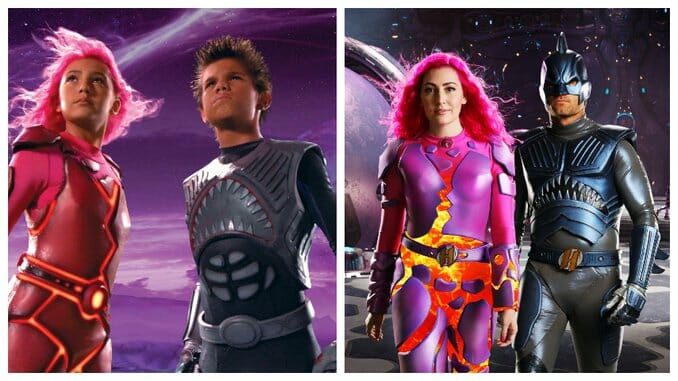We Can Be Heroes, Netflix’s Sharkboy and Lavagirl Sequel, Capitalizes on Gen Z Nostalgia

In a year when many of the most anticipated movies have been delayed indefinitely, Santa didn’t disappoint, delivering an overwhelming number of movies to enjoy (most from the comfort of home) on Christmas Day. Between the playful magic of Soul to the adrenaline-pumping Wonder Woman 1984 —not to mention others such as Promising Young Woman and News of the World —you could watch new movies all day and still have more to see.
It’s not surprising, then, that you may have missed the release of We Can Be Heroes—a sequel to, of all things, The Adventures of Sharkboy and Lavagirl in 3-D—which released on Netflix this Christmas. That’s probably a good thing.
If you haven’t already seen Sharkboy and Lavagirl, it should stay that way. Directed by Robert Rodriguez in 2005, the film starred young Taylor Lautner as child superhero Sharkboy long before Lautner would go on to portray teen heartthrob Jacob Black in the Twilight film series. Taylor Dooley, who played Lavagirl, hasn’t done much acting since. A combination of poor writing, annoying child actors and special effects that were awful even compared to other computer animation at the time led to the film underperforming at the box office and being rightly crucified by critics.
I absolutely adored this film when it came out, as did many of my friends. Admitting that fact might strip me of my right to ever review another film again, but—in my defense—I was five years old.
Like any five-year-olds, we had terrible, terrible taste. The DVD version of the movie contained these stupid, themed 3-D glasses which the movie would instruct us to put on and take off at different points, and this one gimmick was enough to make us become obsessed with the movie, watching it over and over and over. When I told my mother they were coming out with a sequel, she immediately got a horrified look on her face, memories of the ear-grating “Dream a Dream” song—literally titled “Dream Dream Dream Dream (Dream Dream)”—likely reverberating in her brain after being played for the millionth time. “I had nearly forgotten that god-awful movie,” she groaned.
If you think that’s an overreaction, listen to this song and then imagine having it play every day for months on end:
I’m sorry, Mom.
-

-

-

-

-

-

-

-

-

-

-

-

-

-

-

-

-

-

-

-

-

-

-

-

-

-

-

-

-

-

-

-

-

-

-

-

-

-

-

-








































